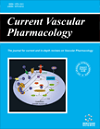
Full text loading...

People on a ketogenic diet may develop an increase in low-density lipoprotein cholesterol (LDL-C), known as the lean mass hyper-responder (LMHR) phenotype. However, this increase does not necessarily correspond to a heightened cardiovascular (CV) risk, and optimal treatment strategies for high-risk individuals within this group remain uncertain.
A 61-year-old man with type 1 diabetes developed the LMHR phenotype after adopting a ketogenic diet. An atherosclerotic plaque was discovered in the bulb of his left common carotid artery, reclassifying him into the secondary prevention category of CV disease. After the introduction of rosuvastatin 20 mg daily, his LDL-C subfraction profile changed from a more atherogenic type B phenotype to a less atherogenic type A phenotype without significantly decreasing overall LDL-C levels. This suggests that rosuvastatin provided a beneficial effect, complementing the metabolic improvements associated with the ketogenic diet, including better blood glucose and insulin control, potential prior reductions in small dense LDL-C and triglycerides, and an increase in high-density lipoprotein cholesterol (HDL-C). In this case, no trend toward a lower threshold was observed for the development of diabetic ketoacidosis.
Assessing LDL-C subfractions before and after the initiation of lipid-lowering therapy is essential in individuals who develop the lean mass hyper-responder (LMHR) phenotype, particularly in the presence of confirmed atherosclerosis. Given the markedly elevated LDL-C levels often observed in this population, it may be difficult to accurately evaluate the burden of atherogenic cholesterol and the extent of its reduction without subfraction analysis. In such cases, statin therapy appears to be a reasonable and potentially beneficial intervention, even among LMHR individuals.